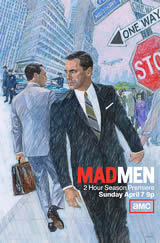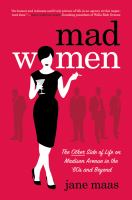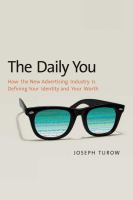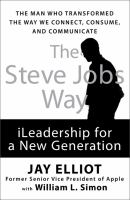Book Review: Why I Left Goldman Sachs
April 15th, 2013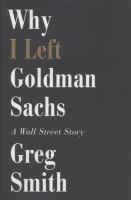 Smith, Greg. Why I Left Goldman Sachs : a Wall Street Story. Grand Central Publishing, 2012.
Smith, Greg. Why I Left Goldman Sachs : a Wall Street Story. Grand Central Publishing, 2012.
In summer 2012, 13 Fuqua students, including 7 interns, began their careers at Goldman Sachs. Congratulations to these students for securing a place in the world’s most prestigious bank. At the same time, it is too bad that these students began their internships and permanent appointments several months before Greg Smith’s book Why I Left Goldman Sachs was published. It is regrettable because Smith’s book, a chronicle of his 12 years at Goldman 2000-12, is a day-to-day account of what it is like to be hired and to work at the investment bank. While the book was not written to be a useful introduction, it achieves that purpose admirably.
Smith begins his book as an intern at Open Meeting at Goldman. Open Meeting is a boot camp for summer interns in the sales and trading program and Smith shows the reader how to navigate them successfully, to impress the partners and to secure an offer for a permanent position. In addition, Smith details specific steps to cultivate relationships with mentors or “rabbis” so an intern can convert the summer internship into a permanent position. He describes the firm, and its organization, processes and protocols. And he offers strategies for negotiating the company, all with a level of detail that would be most helpful to anyone beginning their career at Goldman.
Much of the book is written as a memoir. Smith was a 1st year analyst on 9/11/2001, taking a qualifying exam in Midtown when he learned about the twin towers. During his first year, he describes his first trade, his relationships with coworkers, managers and partners, and later the market meltdown in 2008. Brilliant, focused and competitive, he works hard and for long hours. He is promoted several times until he is Vice President, head of the U.S. equity derivatives business in Europe. Yet ultimately, this is a story of disillusionment. He writes that somewhere between 2000 and 2012, the firm lost its way. When he begins his internship in 2000, he is convinced that the culture of Goldman Sachs is one of truthfulness, resourcefulness and collaboration — one acts in the best interest of the client. By the end, he understands that the firm is only facilitating trades between large institutional investors, generating optimum profits for the partners and harming the global financial system in the process.
There has been a backlash against this book even though it is well written and it rings true. This may result from the manner in which Smith reveals his accomplishments. He competed on the South African team at the Maccabiah Games at age 14, which he calls “one of the five largest sports gatherings in the world.” He earned a full scholarship to Stanford University as an international student from South Africa and lets readers know that only 1% of international students who apply are offered those scholarships. He tells us that only 2.2% of undergraduates who apply for summer internships at Goldman get an offer, and only 40% of interns are offered permanent positions at Goldman for the following year. This style of writing is somewhat off-putting.
Nonetheless, this book is clearly written and provides information useful to students interested in careers on Wall Street, especially the 15 or so Fuqua students who have accepted offers from Goldman Sachs. A quick and easy read, this book is also accessible to others interested in the dealings on Wall Street. Smith is the author of the notable NYT article of the same name that appeared on March 14, 2012 and drew millions of responses worldwide.
© Reviewer: Meg Trauner & Ford Library – Fuqua School of Business.
All rights reserved.
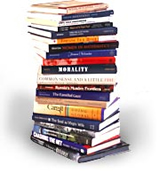
 Coates, John.
Coates, John. 
